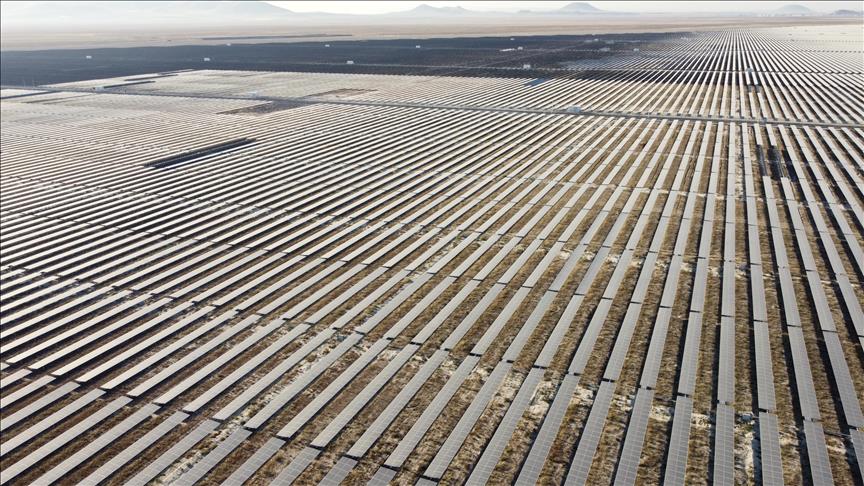

By Anadolu Agency
The increasing use of renewable resources for energy production is likely to require an update to traditional energy security policies in line with global climate targets, according to the International Renewable Energy Agency (IRENA).
IRENA’s Geopolitics of the Energy Transition: Energy Security report revealed the installation of approximately 473 gigawatts (GW) of new renewable power in 2023 alone, bringing the total global clean energy installed capacity to approximately 4,000 GW.
This transition to renewable energy is predicted to boost self-sufficiency, shift energy dependencies from a global to a regional level, and lessen the vulnerability of most countries to geopolitical disruptions, the report argued.
Conversely, the shift to renewables is anticipated to bring more price volatility and market uncertainty.
Overall, the process of transitioning away from a fossil fuel-based system promises to change the dynamics of energy trade, alter the patterns of international dependency and reshape the geopolitical landscape.
– International long-distance energy trade might reduce
According to Alberic Mongrenier, executive director of the European Initiative for Energy Security, the rise of renewable energy could reduce long-distance energy trade.
Mongrenier argues that as renewable energy sources electrify energy networks and electricity becomes less mobile than fossil fuels with more of a concentration of local-based power, more attention will be paid to modernizing and growing the grids to improve regional interconnection.
“This is a good thing for Europe as it means less dependency on fossil imports and therefore increased energy security,” he said.
However, with the move from a fossil fuel-based to a mineral-based energy system, there will be a greater need for imports of various minerals and processed products, primarily from the global south, to produce clean energy technologies.
“So you will still have long-distance trade and external dependencies. No country or region is an island when it comes to energy,” he said.
According to Mongrenier, this change will require a new ‘whole system, whole supply chain’ strategy in each country’s energy security policy, which should encompass any clean resource or technical advancement to increase energy security and help achieve greater regional autonomy.
Nevertheless, he cautioned against becoming too inward-looking and advocated for pursuing trade with global partners that respect the rules of the game, namely strong environmental, labor, transparency, security and free trade standards.
– Supply disruptions carry significant hazards
According to Osama Rizvi, an energy and economy analyst at US-based market intelligence company Primary Vision, the transition to renewables will result in a more stable energy market.
He stated that moving away from reliance on foreign energy sources and toward regional energy independence would improve economic integration and potentially increase trade between nations.
However, he argued that a drawback would be putting more bargaining power in the hands of those few regional players, while less optionality also puts end users more at risk in the case of supply outages.
Rizvi acknowledged the structural changes in the global energy order, especially after the Russia-Ukraine war.
On March 20, 2022, the European Commission published a proposal for a new regulation on gas storage to address the root causes of the problem in the gas market and ensure the security of supply at reasonable prices for the coming winters following the escalation in geopolitical tension between Russia and Ukraine.
The proposed measures were adopted in a gas storage regulation to ensure the security of gas supply by complying with a gas storage target of 90% by Nov. 1 each year. The regulation allows the commission to set the filling trajectory for each EU country with underground gas storage facilities from 2023 onward.
The 90% target of filling gas storage for 2023 was already reached on Aug. 18 last year, roughly 2.5 months ahead of the deadline, the European Commission announced on its official website.
Furthermore, Rizvi advised that in the event of a complete transition to renewables, the fossil-fuel-rich Middle East would experience the biggest change, with the US requiring an update to its foreign policy in the region.
Improvements to marine security would similarly be required in countries that mine or extract minerals in order to support the renewable transition.
We use cookies on our website to give you a better experience, improve performance, and for analytics. For more information, please see our Cookie Policy By clicking “Accept” you agree to our use of cookies.
Read More